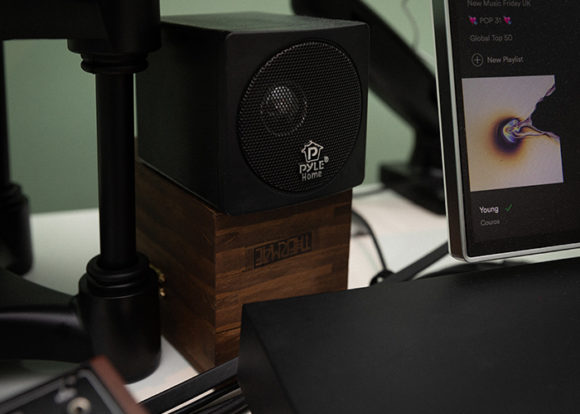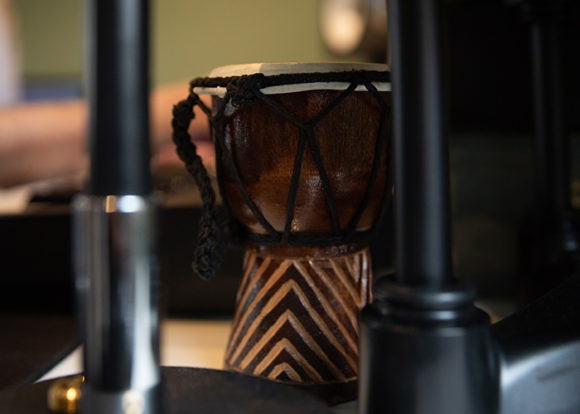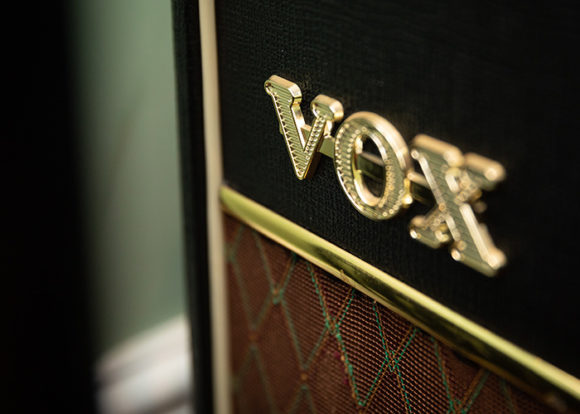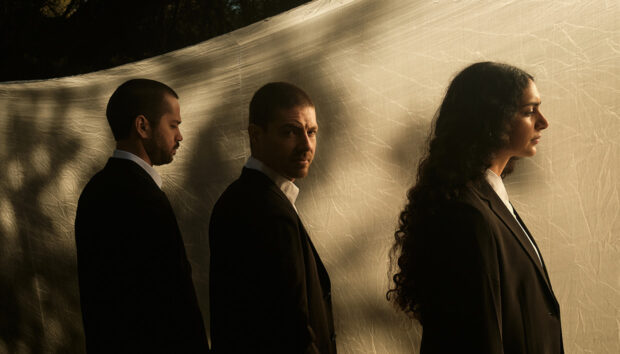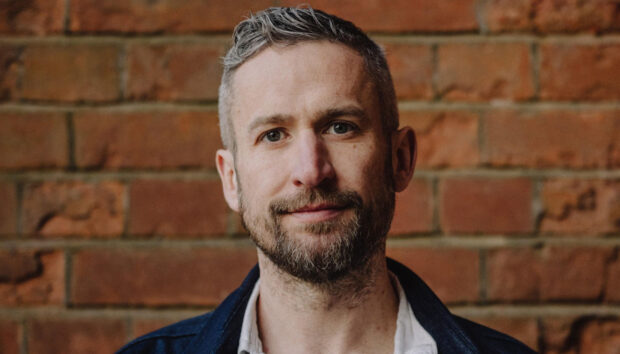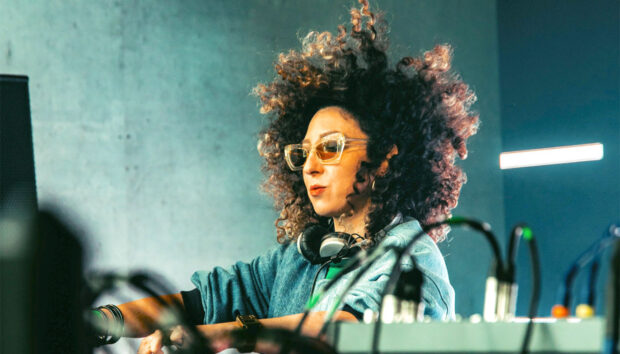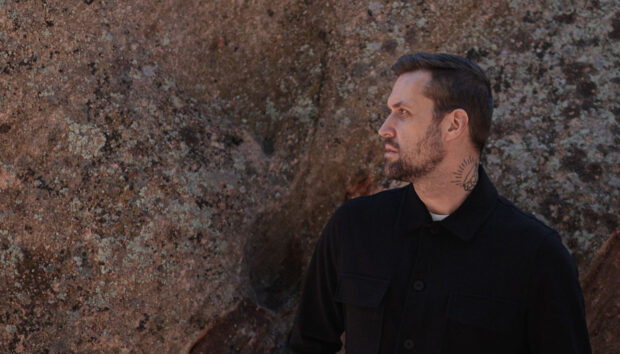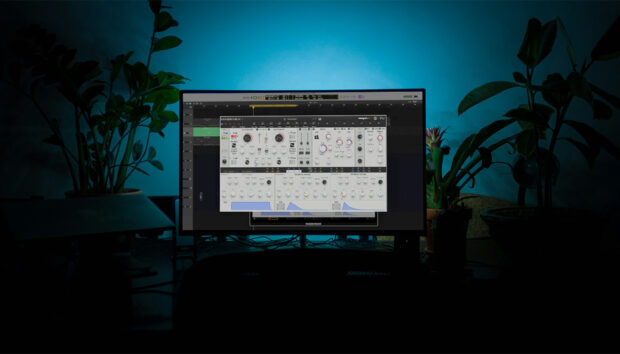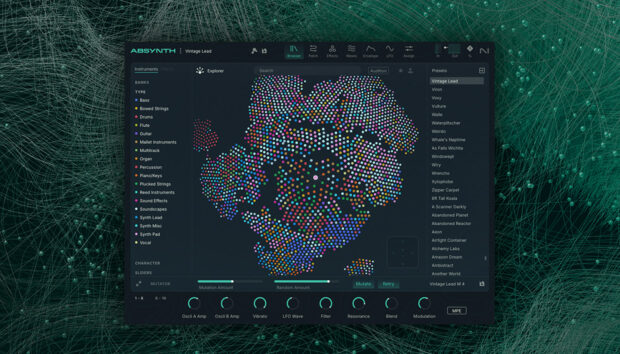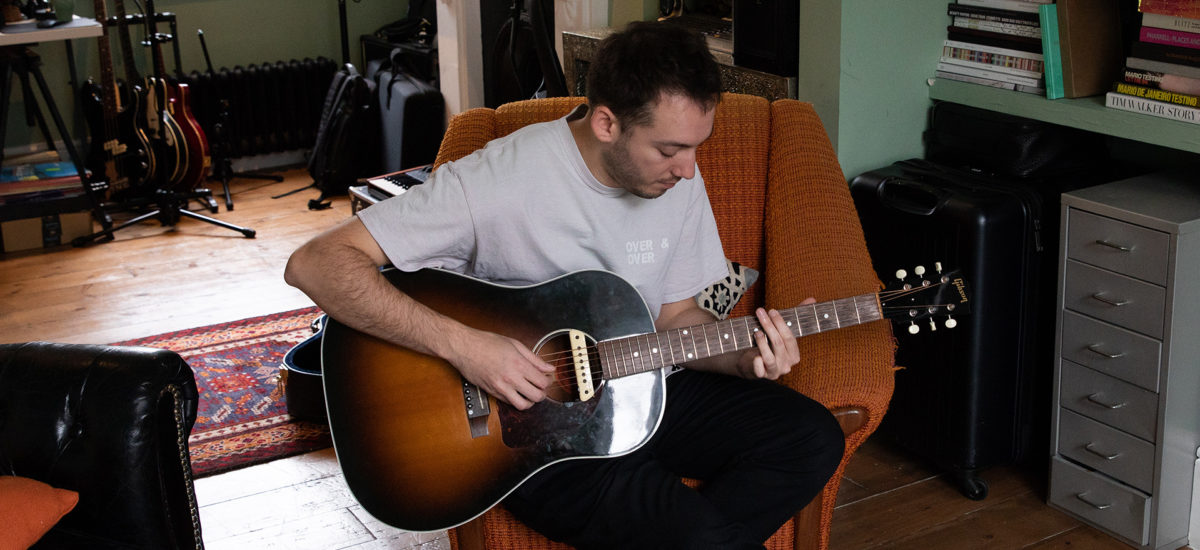
Couros is a Bournemouth-born, London-based producer creating electronic music with a raw, soulful edge. Originally getting into music as a guitarist, he’s now an accomplished beatmaker and songwriter signed to PMR Records, a UK label that has been instrumental in launching the careers of hugely successful artists like Disclosure, Jessie Ware and SG Lewis. From listening to his music, you can tell why Couros fits in at PMR.
Native Instruments went to visit Couros in his home studio in East London to find out about how he approaches making music for himself and alongside vocalists, and how he incorporates KONTAKT into his workflow among other NI plugins.
What’s your workflow like when you make a track? Do you start with anything in particular?
I like to change how I approach a song. It’s good to approach things from different angles depending on the result you want. If I’m working with someone on a pop song, it’s good to get into the main harmony straight away and add drums later. You need to get a feel for the song first, and once you’ve got a song going then do drums and sound design.
If it’s a beat for myself or something less traditional, I might start with drums and leave the music to the end. The thing you start with is normally going to be the main DNA of the song. My workflow does change, definitely. I think the weirdest way I’ve started a song was recording someone kicking the floor. It was weird because it started from a sound design point of view, and the way that ended up sounding in the computer made us want to make a song with a really prominent kick. We wouldn’t have done that if we started with chords.
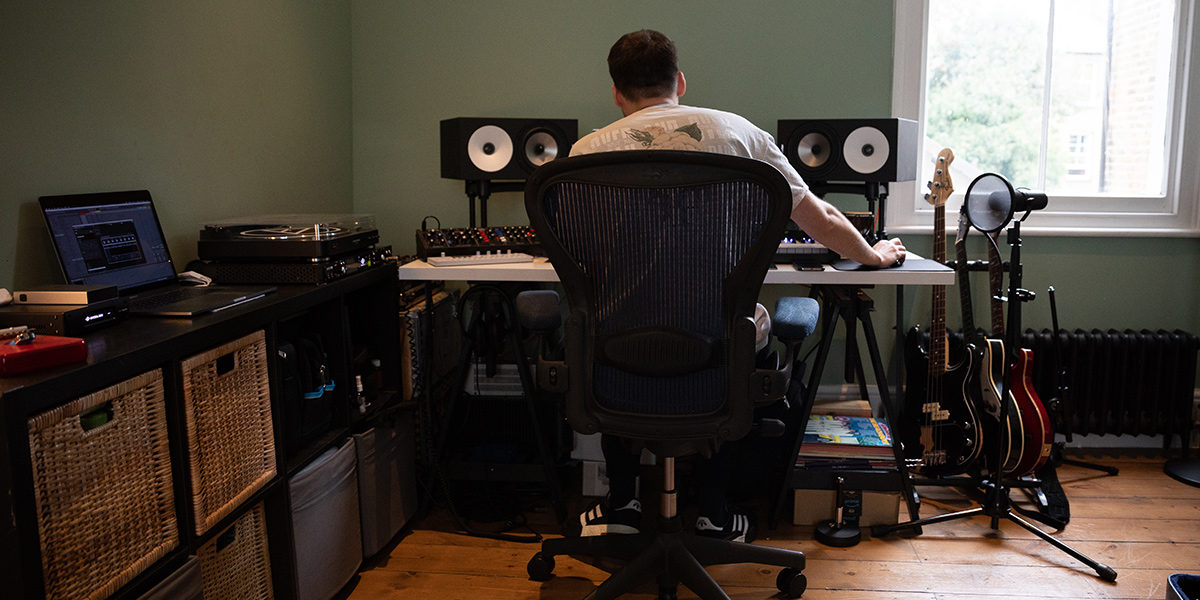
What Native Instruments products do you use and how do you use them? Are there any specific libraries you use?
The Native Instruments plug-in that I use most is KONTAKT. I love samples, and I use a mixture of NI libraries. I really like THE GIANT, that piano is so cool just because it’s impossible. I’d like to see someone try and recreate it in real life, but there’s no way I could have that in my house so I use THE GIANT for its larger than life sounds. I use a lot of Spitfire Audio libraries within KONTAKT.
Recently I’ve been using KONTAKT to make some sample libraries of my own. It’s complicated, but once you get your head around it, it’s amazing. I started with a cheap marimba I had, which used to frustrate me to record because of the room noise. One day, I recorded that and spent hours building the layers, it’s like you’re making something, like programming a piece of software. When you’ve finished it, it’s rewarding.
MASSIVE always finds its way into my production. I like how even if you put it as a big, crazy sound it always takes up this specific place in the mix, to me it sounds like MASSIVE. It’s like if I pick up an acoustic guitar, I know where that’s going to sit in the mix. If I open up MASSIVE I know where that’s going to be sitting. It ends up in the top somewhere, and fills out that empty space if you’ve got a big beat. It’s nice to use if you need to make a wide synth pad or biting lead sound.
Do you use presets as part of your workflow?
Rarely. I was a guitarist first; synths were these things I had no idea about. The reason I decided to learn how to use synths properly was because I hated digging through presets; even if there was one eventually I’d get to. It was hours of preset diving, and I’d lose that excitement I first had when I started looking for the sound.
At the moment I do a lot of blank patches and create stuff. If I’m finishing something and I don’t know what that missing element is, I’ll preset dive for a bit. I might find something close and tune it to make that preset perfect but in general I’m starting from scratch.
You’ve mentioned running your projects through cassette players and guitar amps – can you tell us more about that?
Every track at some point in its life will go out of the computer and back in. I love computers and making music on computers makes my life easier, but I miss the unpredictability you find on old records. Sometimes things can sound too clean if they’re always in the computer.
Guitar amps are amazing for if you want to liven something up. Guitars are boring, they have clean, natural tones and rock music comes from running it into an amp, turning it really loud until the amp’s blowing up the signal. We do it with guitars, but we don’t do it with synths. It’s interesting to destroy it and see what you’re left with. You get weird imperfections.
When you do run something through an amp or cassette player, what stage of the process of making a track does this occur?
There’s always different stages, some things start like that. If I don’t run something through an amp or some tape when I’m producing it, I’ll do it later. If it’s something I’m in love with and I don’t want to change it, then I’ll run it into some nice tape so it basically doesn’t sound any different. It does depend on the song, and how happy I am with it. I’d find it hard to sleep well at night if I knew everything was straight to computer.
How has the way you make music changed since you started producing?
The way that I’ve changed is now my approach is fluid and open, whereas before I’d always start with something I was familiar with first. I feel like I’m learning all the time, always coming up with new ways to do stuff. Now I feel free making music, I wouldn’t feel out of my depth with an artist or genre that I’ve never done before because I would treat it in the same way. I’d do some experimenting, until that point at which you get up out of your chair and start dancing. That bit’s always been the same.
One thing that’s changed is over time is I’ve become more experienced with different equipment, random things I’ve never used before. You learn them and see if they fit with your workflow, and if they don’t you get rid of them and get something else. That way, you pick up these things and you don’t think too much about how it’s supposed to be used. You use it however you want.
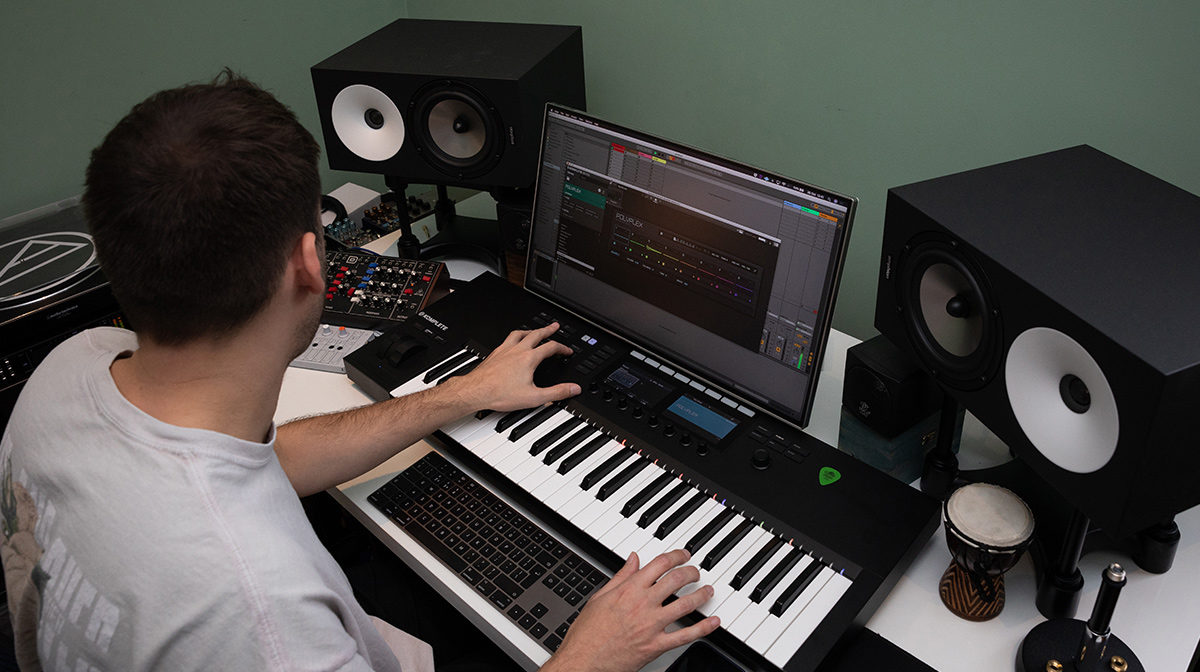
How does your production change when you’re writing your own music as opposed to when you’re writing with a vocalist?
The biggest difference is there’s another person in the room. When I’m making my own stuff, I’m in my own head, very inward, very indulgent. I’ll gladly spend hours on something small, but when you’ve got someone else in the room you can’t do that because you need to finish the song. The most important thing when I’m with someone else is to finish the song first, or make sure that you have confidence that it’s going to be done by the end of the day. Once you’ve got a strong idea of what the song is doing, and maybe you’ve got the vocals recorded at this point, then you start thinking about sound design and production. Production is something you can always finish without the other person there.
What advice would you give to new producers just getting started?
Go wild. Don’t feel boxed in by music that’s hot right now, in a few months it won’t be hot. You’re better off doing what you want to do, and doing what’s naturally, instinctively you. Anything that excites you about music, do it. If you’re into guitars, explore it as much as you can. If you can play guitar, great, play more. If you can’t play but you know people who can, get them to come over and experiment and try weird sounds. You might end up with something that you didn’t expect or plan for, but it might turn out to be amazing and people might love it.
Try and follow your intuition as much as possible because if you love something naturally, you’re going to work so much harder and get more enjoyment out of it. You’re going to be into spending all night finishing something because you love it.
photo credits: Katie Palmer








